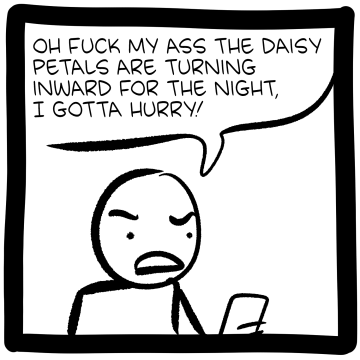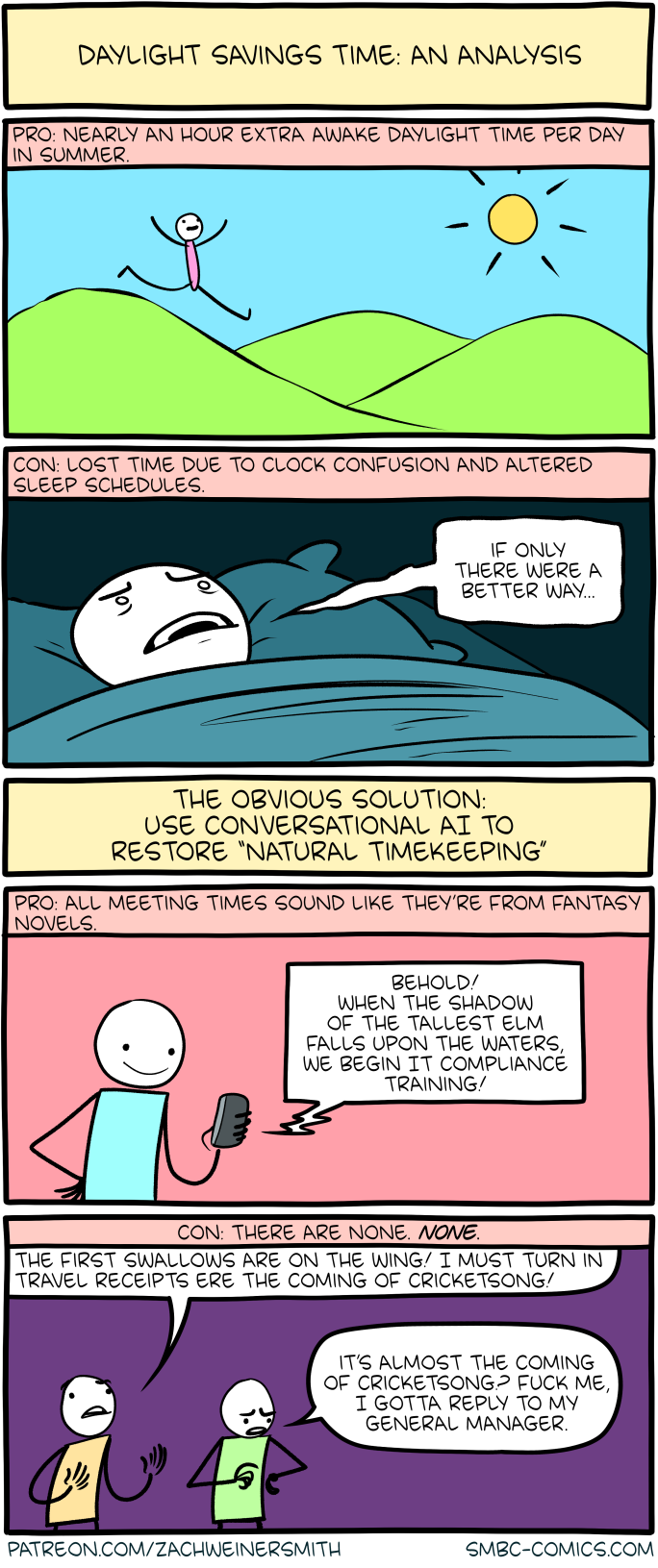Not to be that guy but... It's daylight saving time not daylight savings time
Saturday Morning Breakfast Cereal
Posts and discussion about the webcomic Saturday Morning Breakfast Cereal by Hugo Award-winning author Zach Weinersmith (and related works)
https://www.patreon.com/ZachWeinersmith
New comics posted whenever they get posted on the site, and old comics posted every day until we catch up in a decade or so
Not at the Springfield Try n Save! They have daylight savings for, well, days!
I was also that guy, just ... only in my head. Thank you for your service.
Team UTC. F* DST and TZs. I'll go to work after the sun comes up at 16:30 if it means my watch remains unchanged and there's no adding or subtracting when I make plans with someone on a different latitude.
You’ll still have to add/subtract for plans with distant people to figure out when they’re awake and at work. You just won’t have the convenience of a familiar workday timeframe (9-5) to help you with the calculation.
True. For some reason, it feels less like adding and subtracting than knowing it occurs later or earlier. I kind of like that.
"The sun sets at 6PM, but they're 4 hours ahead so it's setting here at their 10PM and there at my 2PM," feels more complicated than "the sun sets at 16:00 there and 20:00 here," It seems clearer where they are on earth relative to the solar cycle. Also, if I visit them, it's straightforward when I'll be eating and sleeping, so maybe a day before traveling I eat dinner at 18:00 to ease into it.
The best argument against that I've heard is that the date will change mid day for half the world
I think we'd get used to it
Could make some transactions and programming a bit more complex. It's not insurmountable, but not trivial
We already convert to UTC when doing those things across timezones. I believe starting in UTC would actually simplify it by removing that step.
Fair point. Though it might help that the date would change, globally, at the same time. Our current setup is not flawless regarding dates.
Currently, plotting daily events that happen before and after midnight, like sleep, is not straightforward.
Also, anyone who stays up past midnight or works the night shift experiences this already.
When scheduling with folks in drastically different time zones (one's night is the other's next-day morning) you need to account for the hour and the day. If an event is scheduled for the 2nd monday of the month it'll be their 2nd tuesday, sometimes, or their 3rd, depending on what day the month starts on.
It seems to reveal an issue that we use "day" to mean multiple things: the objective increment between month (or week) and hour, and the personal increment after a sleep cycle. Timezones muddle the two by adapting the former to resemble the later.

